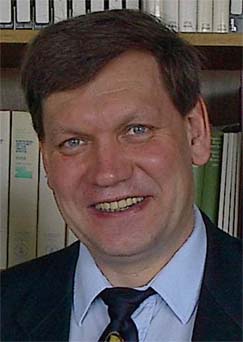New Study of Exceptional Longevity
Greetings,
We are pleased to alert you about our new article on exceptional human longevity, published by peer-reviewed academic journal. This article presents new research methodology and scientific findings on longevity predictors.
Here is the full reference to the article for future possible citations:
Determinants of Exceptional Human Longevity: New Ideas and Findings.
Leonid A. Gavrilov; Natalia S. Gavrilova
Vienna Yearbook of Population Research, 2013, 11: 295-323
DOI: 10.1553/populationyearbook2013s295
Full text is publicly available at:
http://www.oeaw.ac.at/vid/publications/VYPR2013/gavrilov_gavrilov_determinants_exceptional_longevity.html
and
http://epub.oeaw.ac.at/0xc1aa500d_0x00307bbf.pdf
and
http://www.musiklexikon.ac.at:8000/7625-1inhalt/150_vypr13_gavrilov_295-323.pdf
Feel free to contact us for complimentary PDF file of this article, if you have any problems using the provided links.
Comments and suggestions are most welcome!
Thank you, and looking forward to hear from you.
Kind regards,
-- Leonid and Natalia
-------------------------------------------------------------
-- Leonid Gavrilov, Ph.D., GSA Fellow
-- Natalia Gavrilova, Ph.D., GSA Fellow
Center on Aging, NORC at the University of Chicago
Website: http://longevity-science.org/
Blog: http://longevity-science.blogspot.com/
P.S.: Here is the abstract of the new article:
Abstract:
Studies of centenarians are useful in identifying factors leading to long life and avoidance of fatal diseases. In this article we consider several approaches to study effects of early-life and midlife conditions on survival to advanced ages: use of non-biological relatives as controls, the within-family analysis, as well as a sampling of controls from the same population universe as centenarians. These approaches are illustrated using data on American centenarians, their relatives and unrelated shorter-lived controls obtained from the online genealogies.
The within-family analysis revealed that young maternal age at person's birth is associated with higher chances of exceptional longevity. Comparison of centenarians and their shorter-lived peers (died at age 65 and sampled from the same pool of online genealogies) confirmed that birth timing in the second half of the calendar year predicts survival to age 100. Parental longevity as well as some childhood and midlife characteristics also proved to be significant predictors of exceptional longevity.
======== THE END ======================
We are pleased to alert you about our new article on exceptional human longevity, published by peer-reviewed academic journal. This article presents new research methodology and scientific findings on longevity predictors.
Here is the full reference to the article for future possible citations:
Determinants of Exceptional Human Longevity: New Ideas and Findings.
Leonid A. Gavrilov; Natalia S. Gavrilova
Vienna Yearbook of Population Research, 2013, 11: 295-323
DOI: 10.1553/populationyearbook2013s295
Full text is publicly available at:
http://www.oeaw.ac.at/vid/publications/VYPR2013/gavrilov_gavrilov_determinants_exceptional_longevity.html
and
http://epub.oeaw.ac.at/0xc1aa500d_0x00307bbf.pdf
and
http://www.musiklexikon.ac.at:8000/7625-1inhalt/150_vypr13_gavrilov_295-323.pdf
Feel free to contact us for complimentary PDF file of this article, if you have any problems using the provided links.
Comments and suggestions are most welcome!
Thank you, and looking forward to hear from you.
Kind regards,
-- Leonid and Natalia
-------------------------------------------------------------
-- Leonid Gavrilov, Ph.D., GSA Fellow
-- Natalia Gavrilova, Ph.D., GSA Fellow
Center on Aging, NORC at the University of Chicago
Website: http://longevity-science.org/
Blog: http://longevity-science.blogspot.com/
P.S.: Here is the abstract of the new article:
Abstract:
Studies of centenarians are useful in identifying factors leading to long life and avoidance of fatal diseases. In this article we consider several approaches to study effects of early-life and midlife conditions on survival to advanced ages: use of non-biological relatives as controls, the within-family analysis, as well as a sampling of controls from the same population universe as centenarians. These approaches are illustrated using data on American centenarians, their relatives and unrelated shorter-lived controls obtained from the online genealogies.
The within-family analysis revealed that young maternal age at person's birth is associated with higher chances of exceptional longevity. Comparison of centenarians and their shorter-lived peers (died at age 65 and sampled from the same pool of online genealogies) confirmed that birth timing in the second half of the calendar year predicts survival to age 100. Parental longevity as well as some childhood and midlife characteristics also proved to be significant predictors of exceptional longevity.
======== THE END ======================



1 Comments:
ninest123 12.30
prada handbags, tory burch outlet, louis vuitton, polo ralph lauren outlet, louboutin outlet, ray ban sunglasses, louis vuitton outlet, louis vuitton, louis vuitton outlet, longchamp outlet, replica watches, christian louboutin outlet, louboutin shoes, jordan shoes, longchamp outlet, polo ralph lauren outlet, replica watches, michael kors outlet, ray ban sunglasses, louis vuitton, michael kors outlet, nike free, michael kors outlet, burberry, longchamp, cheap oakley sunglasses, gucci outlet, ugg boots, michael kors outlet, michael kors, ugg boots, oakley sunglasses, ray ban sunglasses, nike air max, ugg boots, uggs on sale, tiffany and co, michael kors outlet, oakley sunglasses, prada outlet, tiffany jewelry, burberry outlet online, oakley sunglasses, ugg boots, nike air max, nike outlet, louboutin, chanel handbags, oakley sunglasses
Post a Comment
<< Home